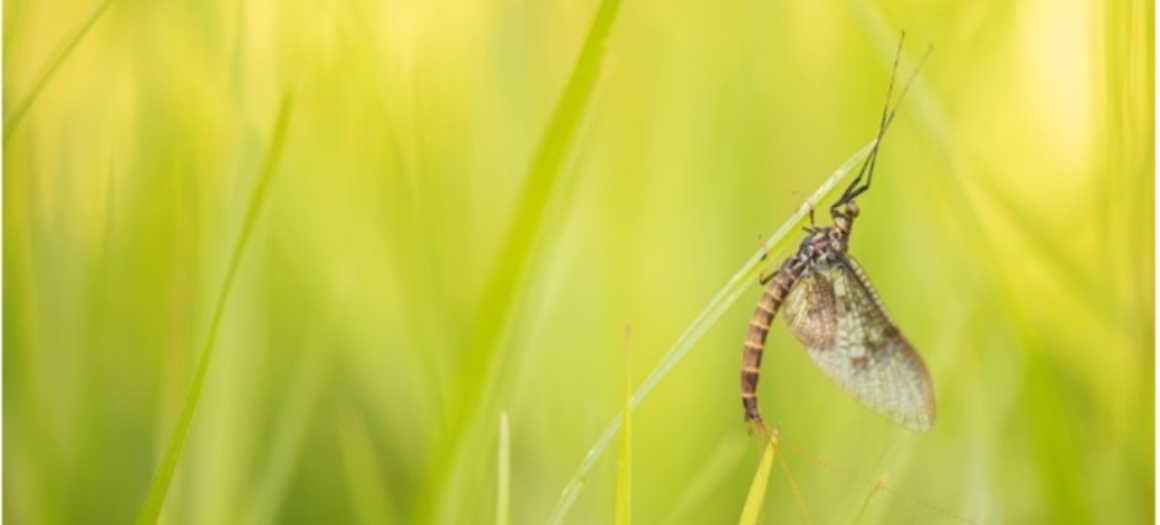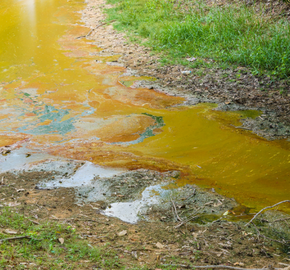Chemical Pollution: The Silent Killer of UK Rivers

This blog discusses the new report from Wildfish, RSPB, Buglife and the Pesticide Collaboration called Chemical Pollution: The Silent Killer of UK Rivers.
“The most alarming of all man’s assaults on the environment is the contamination of air, earth, rivers and sea with dangerous and even lethal materials”
Rachel Carson
Silent Spring, 1962
open the report
Chemicals feature heavily in our everyday lives. From cleaning products, to medicines and even the food we eat. Using chemicals has a variety of benefits, but when they leak into the environment they can pollute air, soil and water with catastrophic effects. Chemicals can persevere in the environment for weeks, months or even years, and can cause significant harm to wildlife on land, in freshwater and in the sea.
Chemicals are just one pollutant threatening our freshwater ecosystems. Sewage, plastic, excess nutrients and waste from farmland all contribute to the dire state of our rivers. Environment Agency data from 2020 showed that all English rivers failed to meet overall quality tests for pollution. Not a single river achieved good chemical status, and only 14% of rivers in England achieved good ecological status.
Chemical Pollution report
Aquatic invertebrates spend most, if not all, of their lives in rivers. Over this time they are directly exposed to the conditions of the water, and often need good water quality to reach maturity. This makes them brilliant indicators of water quality, and so we can learn a lot about a river from how they are faring.
At Wildfish we recently published the 2021 Riverfly Census results. This is a national survey covering 12 English rivers, monitoring aquatic invertebrates as a way to indicate what pressures our freshwater systems are under. Riverflies in particular are a vitally important part of the freshwater ecosystem, including in their role as food for birds, mammals and fish. Wildfish, RSPB, Buglife and the Pesticide Collaboration have published a report looking at some of this survey data in more detail, to better understand the impact chemical pollution is having on our rivers.
What did we find?
Using the Species At Risk (SPEAR) measure, our analysis showed clearly that in autumn, the number of rivers scoring ‘poor’ or ‘bad’ on the chemical stress scale was considerably greater in 2021 than in 2015, 2016 and 2017.
This strongly suggests the problem is getting worse. But the level of chemical stress on its own doesn’t tell us what is happening to biodiversity. A variety of species, rather than just a high number of individuals of one or two species, is what we’re looking for in a healthy system.
The Riverfly Census also looked at the number of caddisfly, mayfly and stonefly species present across all the sample sites per year. WildFish found that in both spring and autumn, 2021 had significantly fewer numbers of species than the previous survey years – showing that in addition to greater chemical stress being indicated, the diversity of key invertebrate species also appears to be decreasing.
What does Government need to do?
One of the key solutions to address the water quality crisis is tackling the pollution that comes from agricultural sources – 40% of waterbodies are failing to achieve good status because of agriculture. There are some important actions the Government could take to address this specific issue:
- Many farmers are turning to nature as part of a regenerative agricultural system. Government should use the opportunity of the development of the new Environmental Land Management Schemes (ELMS) in England to better support farmers to reduce their reliance on pesticides and artificial fertilisers.
- More investment in non-chemical alternatives including research.
- Enforce existing farming regulations designed to protect rivers by agricultural diffuse pollution
Other recommendations for addressing chemical pollution are:
- The UK Government is currently writing a Chemicals Strategy. This is an opportunity to be bold and ambitious in tackling chemical pollution across the UK. Many UK charities across the environment and human health have signed up to 12 key asks that should be included in the strategy.
- Properly mandate and resource a comprehensive river monitoring network. Despite the evidence that our rivers are in crisis, the coverage, resolution and frequency of national monitoring regimes continues to decline. Without a strong data baseline, it is extremely difficult to determine the long-term impacts of the pressures plaguing our watercourses or to confidently measure the success of actions undertaken to improve them.
- Improve gaps in the risk assessment for chemicals before they are approved, and carry out retrospective assessments on chemicals already in use to better understand the real world impacts.
Conclusions
Evidence is clear that our freshwater habitats are suffering from a multitude of threats. Stopping pollution at source is better than removing it once it’s there – in other words, prevention is better than cure. This means reducing reliance on chemicals in general, but also having sufficient enforcement so that it acts as a deterrent to would-be polluters. We are in a biodiversity crisis, and we must act urgently.

